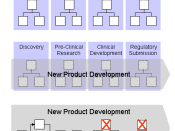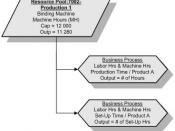Introduction
Developing an information system is a human's action that attempts to create an appropriated information system, which can help an organization to get more competitiveness by solving problems. In this article, two typical approaches will be discussed, one is engineering approach, which had been extremely influential a decade ago, the other is socio-tech approach that has been widely mentioned and applied in contemporary information system development.
The engineering approach, according to Dillon, can be described as a "data, process oriented" work begins with clear and formulated objectives and tries to use technology to make the process more efficiently. By contrast, socio-tech is an objective oriented approach that tries to find problems in the current system and find the best way to solve it. (Dillon, 2000)
In the following essay, these two approaches will be compared and contrasted; several details of them also will be discussed separately to illustrate their own characters, advantage and disadvantage.
A small example will be given to analyze which approach should be chosen in a particular organization.
Compare and contrast
qSimilarities
As ways to create an information system in an organization, engineering and socio-tech approaches share some common opinions:
1.Aim
The goal of these two approaches is to create a new information system that can be accepted by users and solve problems in an organization.
2.Business processes
In every organization, there must have one or more business processes, such as manufacturing process, accounting process, human resource process, sales and marketing process. Neither engineering nor socio-tech approach can ignore the processes as well as the people involved in them.
qDifferences
Generally, engineering approach is action or process oriented, which focus on the information analysis and computer science. Socio-tech, on the other hand, is user-center oriented, which considers more about the people and...


